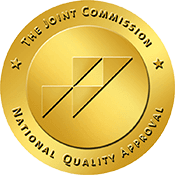One of the greatest dangers in recent years is the increased abuse of fentanyl. Fentanyl is a powerful synthetic opioid that is 50 to 100 times more potent than morphine. While it is medically prescribed for severe pain, its potency has led to widespread misuse, addiction, and an alarming rate of overdoses. Fentanyl addiction can develop rapidly due to its high potency and the intense euphoria it produces. Fentanyl withdrawal is a difficult process, and one that causes many to fall back into addiction.
This addiction is not only difficult to overcome but also poses a significant risk to an individual’s health and well-being. To learn more about fentanyl addiction detox in Jacksonville, Florida, call us today at 866.723.3127.
Health Risks of Fentanyl
Chronic use of fentanyl can result in:
- Severe respiratory depression
- Gastrointestinal issues
- Cardiovascular problems
The risk of overdose is extremely high, given that even a small amount can be lethal.
Psychological Impact
Addiction to fentanyl can lead to devastating psychological effects such as anxiety, depression, and severe mood swings. The constant craving for the drug disrupts daily life and damages relationships.
What Happens During Fentanyl Withdrawal
Withdrawal from fentanyl is a challenging and painful process due to the body’s dependence on the drug. When an individual stops using fentanyl, they experience a series of withdrawal symptoms as their body attempts to adjust to the absence of the substance.
Common Symptoms
Early symptoms include:
- Muscle aches
- Restlessness
- Insomnia
As withdrawal progresses, individuals may experience more severe symptoms like nausea, vomiting, diarrhea, and intense cravings for the drug.
Physical and Emotional Struggle
The physical discomfort is accompanied by emotional turmoil, including anxiety, agitation, and depression. The combined effect makes the withdrawal process both physically and psychologically taxing.
What Is the Fentanyl Detox Timeline
The timeline for fentanyl detox varies depending on the individual’s level of dependency, overall health, and other personal factors. However, the general stages of withdrawal can be outlined as follows:
Early Phase (8–24 hours)
Symptoms begin to appear within 8 to 24 hours after the last dose. Initial signs include muscle aches, restlessness, and anxiety.
Peak Phase (1–3 days)
Withdrawal symptoms peak within the first three days. During this period, individuals often experience the most intense physical and psychological symptoms, such as sweating, chills, vomiting, and severe cravings.
Late Phase (4–10 days)
Symptoms start to diminish but can still be uncomfortable. Nausea, abdominal cramps, and irritability are common during this phase.
Post-Acute Withdrawal Syndrome (PAWS)
Some individuals may experience lingering symptoms, known as PAWS, for weeks or even months after the acute withdrawal phase. These can include mood swings, sleep disturbances, and persistent cravings.
Can You Die From Fentanyl Withdrawal?
While fentanyl withdrawal itself is not typically life-threatening, the process can lead to severe complications if not properly managed. Dehydration from excessive vomiting and diarrhea, as well as the risk of relapse and overdose, pose significant dangers.
Given these dire symptoms, medical supervision during detox is crucial to ensure safety and manage any complications effectively. Additionally, having a strong support system in place can greatly enhance the chances of a successful recovery.
What Is Fentanyl Detox Treatment?
Fentanyl detox treatment involves the supervised removal of the drug from the body. It includes medical and therapeutic interventions to manage withdrawal symptoms and support the individual through this critical phase of recovery.
Medical Supervision
Detox at an accredited center like Tides Edge Detox ensures 24-hour medical supervision. Certified doctors and nurses monitor patients and administer medications to alleviate withdrawal symptoms.
Individualized Treatment Plan
At Tides Edge Detox, each patient receives a personalized detox plan tailored to their unique health needs, addiction history, and symptom severity. This approach maximizes comfort and effectiveness during detox.
Holistic Therapies
In addition to medical treatments, holistic therapies such as acupuncture, yoga, and meditation are integrated into the detox program to promote overall well-being and reduce stress.
Benefits of Fentanyl Detox Treatment
Choosing a professional detox program like Tides Edge Detox offers numerous advantages over attempting to detox at home.
- Safety and Comfort – Medical supervision ensures that any severe withdrawal symptoms are promptly addressed, making the process safer and more comfortable.
- Professional Support – Continuous support from addiction experts, including therapists and counselors, provides the necessary emotional and psychological assistance.
- Continuity of Care – After detox, patients can seamlessly transition to a structured rehab program at Beaches Recovery, ensuring ongoing support and treatment.
These benefits help pave the way to a successful and long-term recovery.
Consider Fentanyl Addiction Detox at Tides Edge Detox
If you or a loved one is struggling with fentanyl addiction, it’s crucial to seek professional help. Tides Edge Detox in Jacksonville, FL, offers accredited detox services that prioritize your safety, comfort, and long-term recovery. With individualized treatment plans, round-the-clock medical supervision, and a comprehensive approach to detox, Tides Edge Detox provides the best start to your journey toward sobriety.
The time to take action is now. Call Tides Edge Detox today or use our online contact form to learn more about how we can help you overcome fentanyl addiction and reclaim your life.









